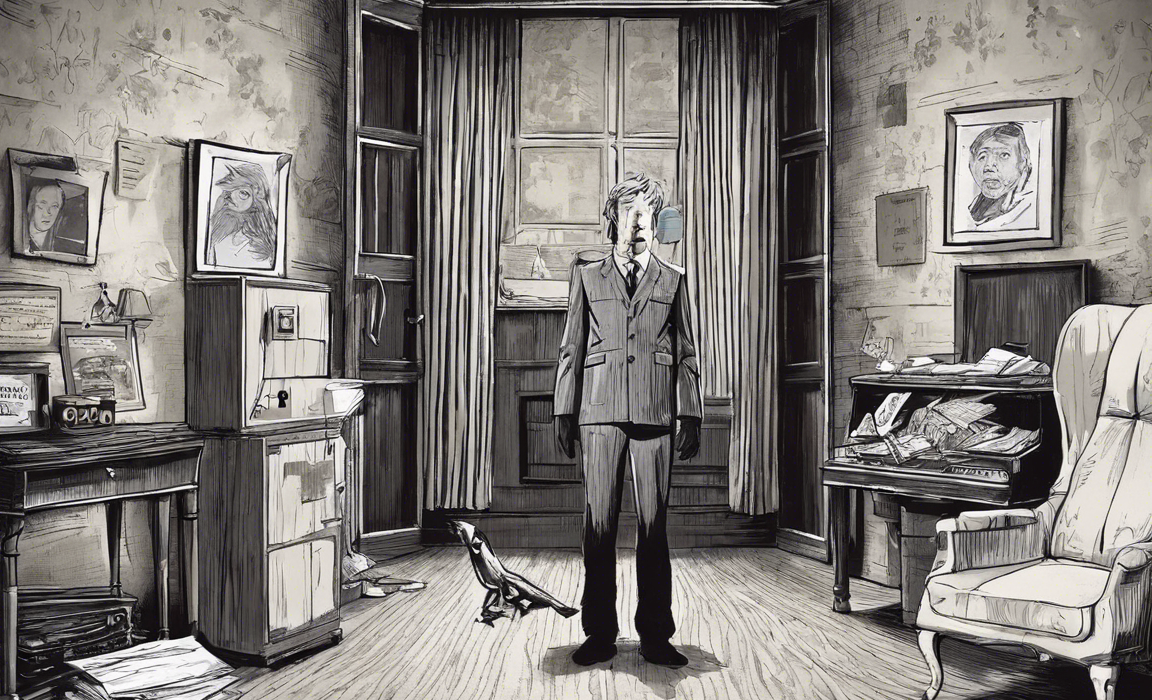Exploring Inside No 9: Stage Fright
If you are a fan of British dark-comedy anthology series, then “Inside No. 9” must be on your watchlist. Created by Steve Pemberton and Reece Shearsmith, the show is known for its unique format and clever storytelling. One of the standout episodes of the series is “Stage Fright,” which aired as the first episode of the third season. In this blog post, we will delve into the world of “Stage Fright” and explore what makes it a memorable and intriguing part of the “Inside No. 9” anthology.
The Premise
“Stage Fright” centers around the behind-the-scenes drama at a production of a gothic horror play titled “The Devil of Christmas.” The episode takes place in a dressing room at the theatre where the play is being performed. As the cast prepares for the performance, tensions rise, secrets are revealed, and the line between reality and fiction blurs. The episode unfolds in real-time, adding to the suspense and intensity of the narrative.
Themes
One of the central themes of “Stage Fright” is performance. The episode explores the idea of acting both on and off the stage. The characters in the dressing room are not only performers in the play but also in their everyday lives. As the episode progresses, the audience is left to question what is genuine and what is an act, blurring the boundaries between reality and performance.
Another key theme in “Stage Fright” is deception. Each character in the dressing room harbors their own secrets and lies, adding layers of complexity to the narrative. As the truth slowly unravels, the audience is kept on the edge of their seats, trying to piece together the puzzle of the characters’ motivations and actions.
Character Dynamics
The dynamic between the characters in “Stage Fright” is one of the highlights of the episode. From the arrogant leading man to the insecure actress, each character brings their unique personality and motivations to the story. The tensions and conflicts that arise between the characters drive the narrative forward, keeping the audience engaged and invested in the outcome.
Clever Twists and Turns
“Inside No. 9” is known for its clever twists and turns, and “Stage Fright” is no exception. As the episode unfolds, the audience is taken on a rollercoaster ride of suspense and intrigue. Just when you think you have the story figured out, a new revelation shakes up the narrative, keeping you guessing until the very end.
Visual Storytelling
In addition to its strong writing and performances, “Stage Fright” excels in its visual storytelling. The episode makes creative use of the limited setting of the dressing room, using lighting, props, and camera angles to create a sense of claustrophobia and tension. The visuals enhance the eerie atmosphere of the play-within-a-play, adding another layer of complexity to the storytelling.
Overall Impact
“Stage Fright” is a standout episode of “Inside No. 9” that showcases the show’s strengths in storytelling, character development, and visual creativity. The episode’s exploration of performance, deception, and character dynamics keeps the audience on the edge of their seats, making it a memorable and compelling addition to the anthology series.
Whether you are a fan of dark comedy, psychological thrillers, or innovative storytelling, “Stage Fright” is a must-watch episode that will leave you entertained and captivated from start to finish.
Frequently Asked Questions (FAQs)
1. What is the significance of the title “Stage Fright” in the context of the episode?
– The title “Stage Fright” plays on the idea of performance anxiety and fear of being on stage, reflecting the characters’ inner turmoil and insecurities.
2. How does “Stage Fright” compare to other episodes of “Inside No. 9”?
– “Stage Fright” stands out for its real-time narrative, intense character dynamics, and clever twists, making it a fan favorite among viewers.
3. Are there any Easter eggs or hidden references in “Stage Fright” that fans should look out for?
– Yes, eagle-eyed viewers may spot subtle references to classic horror films and theatrical tropes peppered throughout the episode.
4. How does “Stage Fright” showcase the talents of the creators, Steve Pemberton and Reece Shearsmith?
– The episode demonstrates Pemberton and Shearsmith’s skill in crafting intricate stories, developing complex characters, and subverting audience expectations with unexpected plot twists.
5. What makes the setting of a theatre dressing room an effective backdrop for the events of “Stage Fright”?
– The intimate setting of the dressing room intensifies the sense of confinement and pressure, heightening the drama and suspense of the episode.
6. Can new viewers enjoy “Stage Fright” without having seen the previous episodes of “Inside No. 9”?
– Yes, “Stage Fright” can be appreciated as a standalone episode for its engaging story, compelling characters, and suspenseful atmosphere.
7. How has “Stage Fright” been received by critics and audiences since its release?
– The episode has garnered critical acclaim for its inventive storytelling, stellar performances, and expertly crafted suspense, earning praise from both fans and reviewers.
8. What elements of “Stage Fright” contribute to its dark comedy and horror undertones?
– The episode weaves together elements of dark humor, psychological tension, and eerie atmosphere, creating a unique blend of comedy and horror that keeps the audience on edge.
9. What can viewers take away from the themes and messages explored in “Stage Fright”?
– “Stage Fright” invites viewers to reflect on the nature of performance, deception, and identity, prompting deeper insights into the complexities of human behavior and motivations.
10. Are there any sequels or follow-up episodes to “Stage Fright” planned for future seasons of “Inside No. 9”?
– As of now, there are no announced sequels or direct follow-ups to “Stage Fright,” but fans eagerly anticipate new episodes that may revisit similar themes and storytelling techniques in future seasons of the series.






